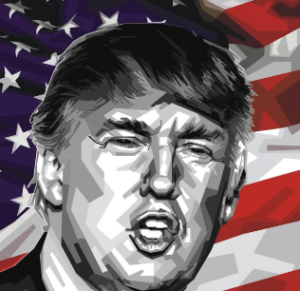$DTEGY $DOGE $TSLA
#DeutscheTelekom #DOGE #ElonMusk #Deregulation #EuropeEconomy #Telecom #GovernmentEfficiency #StockMarket #Crypto #Innovation #Regulation #EconomicGrowth
Europe requires its own version of what Elon Musk has initiated in the United States with the Department of Government Efficiency (DOGE), according to Deutsche Telekom CEO Tim Höttges. Speaking at an industry event, Höttges emphasized that burdensome regulations and bureaucratic inefficiencies are stifling innovation and economic growth in Europe’s telecommunications sector. He pointed to Musk’s approach in the U.S., where the tech mogul has repeatedly advocated for cutting red tape and streamlining government processes to foster private-sector advancements. For Deutsche Telekom, Europe’s telecommunication regulations have made it difficult to keep pace with global competitors, particularly those in the U.S. and China. Höttges argued that a more business-friendly regulatory environment could unlock greater investments in digital infrastructure, 5G deployment, and emerging technologies critical to the continent’s future competitiveness.
Höttges’ remarks come at a time when European telecom operators have been grappling with challenges stemming from stringent EU regulations, which have historically kept competition high but profits low. Unlike in the U.S., where consolidation in the telecom sector has allowed companies to scale more efficiently, European firms continue to struggle with fragmented markets and price ceilings imposed by regulators. As a result, Höttges and other industry executives have pushed for deregulation to allow firms like Deutsche Telekom to operate more freely, invest in cutting-edge technology, and compete on a global level. His mention of DOGE—commonly associated with Dogecoin ($DOGE) but used here as an acronym for an efficient governance model—signaled admiration for Musk’s unconventional but effective way of influencing policy and cutting bureaucracy. Investors in telecom equities, particularly Deutsche Telekom ($DTEGY), have taken note of these pressures, and any policy shifts toward deregulation could have significant market implications.
Beyond regulatory concerns, Höttges’ comments also highlight a broader discussion about Europe’s ability to foster tech-driven economic growth in an era dominated by U.S. and Chinese innovations. Companies like Tesla ($TSLA) and SpaceX have benefited from regulatory flexibility in the U.S., allowing them to expand rapidly and take risks that may not be feasible within Europe’s current regulatory landscape. European policymakers now face growing pressure to balance consumer protection with the need for telecom and tech firms to scale efficiently. The expansion of 5G networks, cloud computing services, and artificial intelligence infrastructure will require sustained investment, and industry leaders argue that scaling down government intervention could help attract capital from both domestic investors and foreign entities. The stock markets are particularly sensitive to regulatory changes, and any signs of deregulation in key sectors, such as telecommunications and fintech, could create new investment opportunities.
Market analysts view Höttges’ comments as a potential inflection point in the ongoing debate over European regulatory policies. If policymakers heed his call for a DOGE-style approach, industries beyond telecommunications—including fintech, autonomous vehicles, and digital commerce—could see reduced regulatory friction, attracting more venture capital and institutional investment. However, any shift toward deregulation would have to navigate political resistance, as EU regulators have long prioritized consumer rights and fair competition. Stocks like Deutsche Telekom ($DTEGY) could experience sharp movements depending on how this debate unfolds, while the broader European markets may react positively to any signals of a more competitive business environment. Investors will be closely watching for any legislative proposals or policy adjustments that align with Höttges’ vision, as such developments could have a significant impact on Europe’s economic trajectory in the years ahead.










Comments are closed.